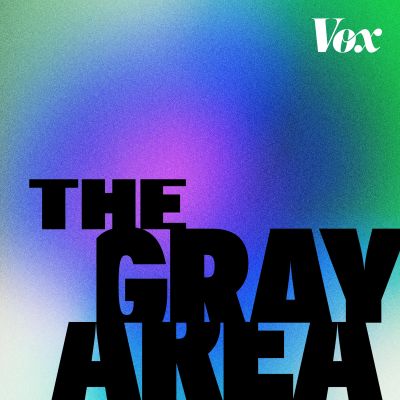The Gray Area with Sean Illing takes a philosophy-minded look at culture, technology, politics, and the world of ideas. Each week, we invite a guest to explore a question or topic that matters. From the the state of democracy, to the struggle with depression and anxiety, to the nature of identity in the digital age, each episode looks for nuance and honesty in the most important conversations of our time. New episodes drop every Monday.
https://www.vox.com/vox-conversations-podcast
episode 330: Robert Frank's radical idea
I’ve known Cornell economist Robert Frank for almost 15 years. And for as long as I’ve known him, Frank has been trying to convince his fellow economists of an idea that’s simple to state, but radical in its implications: social pressure is a fundamental economic force. We are not rational, individual economic agents; we are social animals trying to mimic, and best each other — oftentimes without even knowing it. The failure of the economics profession to see this is, in Frank's view, a crime against public policy.
Frank’s new book, Under the Influence: Putting Peer Pressure to Work, came out shortly before coronavirus reshaped daily life. But it is, for that very reason, extraordinarily timed: it’s an effort to show that the economics of social contagion could reshape the world, solving our hardest problems — from climate change to income inequality — and offering new ways to think about the power we have as individuals. Absent coronavirus, its argument might’ve seemed abstract, optimistic. But now we've seen it happen.
We are watching a version of Frank’s thesis play out right now, in real time. In the wake of coronavirus, social pressure has driven perhaps the single fastest behavioral transformation in human history. It is the example and pressure we face from each other that has made social distancing so effective, so fast. And if social pressure can do that — what else can it do?
What Frank offers here is a theory of how public policy can shape peer pressure for good and for bad. Some of the ideas in this podcast — "expenditure cascades," "positional goods" — are hard to unsee once you see them. Others — like his proposal to rebuild the tax system around a progressive consumption tax meant to curb the intra-wealthy competitions that drive inequality — would radically reshape vast swaths of the tax code.
Book recommendations:
The Uninhabitable Earth by David Wallace-Wells
Micromotives and Macrobehavior by Thomas Schelling
"How to solve climate change and make life more awesome" with Saul Griffith (podcast)
Want to contact the show? Reach out at ezrakleinshow@vox.com
Please consider making a contribution to Vox to support this show: bit.ly/givepodcasts Your support will help us keep having ambitious conversations about big ideas.
New to the show? Want to check out Ezra’s favorite episodes? Check out the Ezra Klein Show beginner’s guide (http://bit.ly/EKSbeginhere)
Credits:
Producer/Editor - Jeff Geld
Researcher - Roge Karma
Learn more about your ad choices. Visit podcastchoices.com/adchoices
